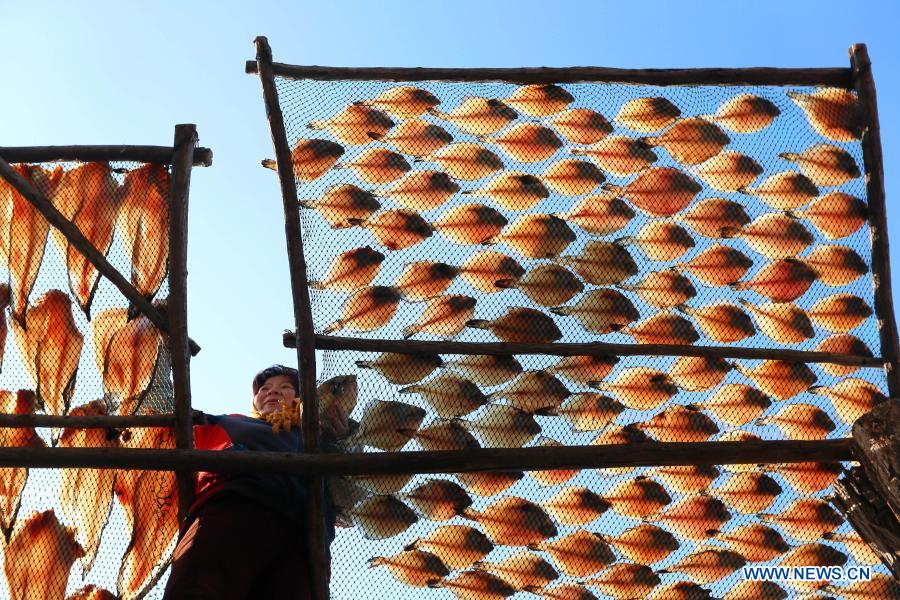
“Home fitness” by Li Hao (李昊) [via CCTV]
Dear reader,
Dongsheng member Tings Chak joined Brian Becker on the “The Socialist Program” by BreakThrough News. They discussed China’s foreign policy relating to Russia, Ukraine, Taiwan, and the US and the domestic fight against the Covid-19 pandemic. Watch it here.
–Dongsheng editorial collective

Geopolitics
China hosts next BRICS summit in June and invites Argentina, which declared interest in joining the platform
The South American country joined the Belt and Road Initiative in February and receives Chinese investment and cooperation on several infrastructure projects; China may support Argentina’s membership in BRICS, as Brazil backs the country’s participation in the Shanghai-based New Development Bank (“BRICS Bank”)
Chinese imports from Russia surge 56.6% year-on-year in April, hitting record of US$8.89 billion
Rising oil and gas prices are the main cause, while Chinese exports to Russia fall 25.9%; Chinese Ambassador to Moscow Zhang Hanhui says NATO sanctions have brought difficulties, but both countries will continue to cooperate on energy, military and space technology, and the de-dollarization of bilateral trade, investment, and credit
China turns to coal to secure short-term energy supply amid global price hikes, lifting import tariffs and boosting domestic production
Sanctions on Russia slow energy transition in China, which imports 44% of the cleaner natural gas and ⅔ of crude consumption (2021); after eight gas/diesel price-hikes since January, central bank offers credit lines (US$15 billion) to support domestic coal production, set to increase (+300 million tons, 2022)

National Politics
John Lee Ka-chiu will become Hong Kong’s next chief executive, with housing, national security, and international competitiveness as top priorities
Lee secures 99.2% of votes by 1,461-member Election Committee, as sole candidate and with firm Beijing endorsement; working 30 years in policing, the former secretary of security during 2019 protests will assume his new post on 1 July
China will create testing booths within 15-minute walking-distance in major cities, requiring negative Covid-19 test results to move around
Massive testing costs could account for 0.2% to 1.8% of GDP, however, some economists predict that new strategy could avoid long roadblocks, reducing the impact of zero Covid policies on GDP by 1.6 percentage points

People’s Life and Culture
Due to China’s low Covid-19 infection rates and concerns of vaccine side-effects, many Chinese seniors are hesitant to get vaccinated
With voluntary vaccination, medical teams face difficulties in convincing families to have elders get vaccinated; a recurring problem is the “coupling effect” in which elders fall ill due to unrelated health conditions after vaccination, blaming the vaccine
More Chinese people working out at home with the help of the Internet and video games could grow the industry to US$133 billion by 2026
During the recent lockdowns, live broadcasts by Taiwanese trainer Liu Genghong went viral and total fitness videos on Douyin increased 134% and its followers 208% (2021); with government encouragement, number of Chinese exercising could increase from 300 to 420 million (2021-26)

Economy
Cargo turnover at major Chinese ports drops 5.1% year-on-year in mid-April due to Covid-19 restrictions
Over 50% of companies with annual exports between US$7.36 million and US$14.7 million reported a year-on-year drop in sales; importers turn to countries such as Vietnam, Indonesia, and Mexico, though substitution is considered temporary due to China’s higher logistical efficiency and production capacity

Agriculture and Environment
Green hydrogen production is expected to grow from 1% to 10% (2019-30), an important part of China’s long-term decarbonization goals
China is the world’s largest hydrogen producer, with 33 million tons produced in 2021; estimated domestic demand for hydrogen, currently at 20 million t/year, will increase to 35 million (2030) and 60 million (2050)
Shandong and Fujian provinces will reallocate fuel subsidies to the fishing industry to combat overfishing and protect the ocean environment
New “fishery stewardship” subsidy requires compliance with closed seasons and responsible fishing, but monitoring remains a challenge; implemented in 2006, government aid to address rising oil prices helped fishers but led to overfishing and stock depletion

Drying fish in Duoshi Village in Qingdao, Shandong province, 6 December 2020 [Xinhua/Liang Xiaopeng]
Subscribe to News on China. The digest is published every Saturday in English, Spanish, Portuguese, and French.
Follow our social media channels:
- Twitter: @DongshengNews (English), @DongshengNewsES (Spanish), @DongshengNewsBR (Portuguese)
- Telegram: News on China, Noticias de China, Notícias da China
- Instagram: @DongshengNews
- YouTube: Dongsheng News





